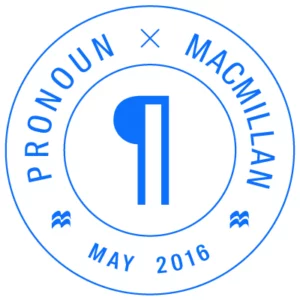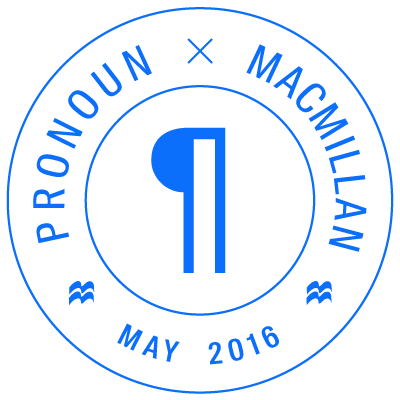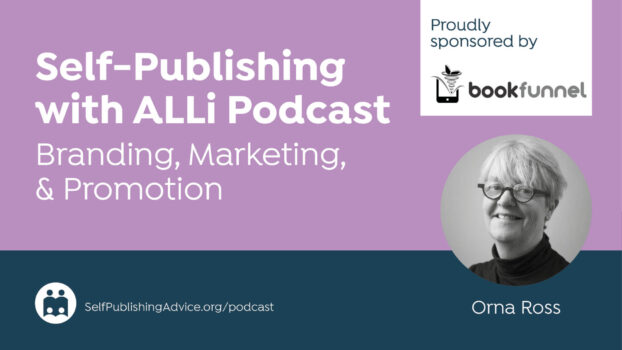Last month, I reviewed Pronoun, an intriguing, free, assisted self-publishing platform. I'm updating that review today with a significant new development: Macmillan has acquired Pronoun.

Uncertainty, but optimism too
The incursion of Big 5 publishers into the realm of self-publishing has rarely benefited indie authors. The long, ugly history of traditional publishers partnering with predatory companies casts a pall over this acquisition.
Despite that history, I'm optimistic about this development for several reasons:
- Macmillan's deep pockets offer the resources Pronoun needs to survive and innovate
- Pronoun's services remain free, and all rights still remain with the author
- Pronoun continues to roll out new features and free benefits for indie authors
- Macmillan's acquisition of the company underscores their confidence in Pronoun's potential
- Macmillan has steered clear of vanity press partnerships, and their parent company, Holtzbrinck, operates well-regarded German platforms ePubli and Neobooks
- Pronoun's core leadership and pro-indie philosophy remain intact
Straight from the source
We brought our questions and concerns to Allison Horton, Author Advocacy and Marketing representative for Pronoun.
Q1. In our previous interview, you mentioned that Pronoun had no plans to offer editing, cover design, and hands-on marketing services. Has that changed under the new arrangement?
AH: This has not changed. We'll still list author-recommended, vetted freelancers in a directory, but Pronoun is not selling these services to authors, nor are we taking any transaction fees (since it's not technically a marketplace).
As is currently the case, imprints and partnerships do use both internal resources and outside freelancers for cover design, editing, etc. And this will be the case moving forward. Services are provided in revenue-share partnership or imprint deals.
Q2. Big 5 publishers have repeatedly partnered with high-pressure, predatory vanity presses like Author Solutions, to the detriment of indie authors. What assurances do authors have that the new paid tiers will be mutually beneficial?
AH: We succeed when our authors succeed, and we don't see any other model that's sustainable in the long run. This means that we're not going to push services on authors that likely won't help them meet their goals. As you mention, there are (sadly) plenty of companies doing that already.
The core publishing platform is free. Authors who are already succeeding, want additional support, and are a good fit for any next-level offering can sign on for more. Our plan has not changed for what we've told you and authors before – we are still making our free platform the best we can, then figuring out what services will be worth a revenue share with authors. We don't plan to offer any “paid” services like the other companies you mentioned.
Rather, when we say “paid tiers,” we mean higher levels of service for a percentage of your sales. Services like Smashwords, Bookbaby, and Draft2digital charge a share of revenue or fee for their baseline service. We want to provide that level of service for free, and only charge similar percentages to what they do when we can offer far greater value.
And big picture: our mission is still to transform the publishing industry with a model that puts authors first. Doing anything detrimental to authors works against that goal; it's not how we'll grow the company, and it's not how we'll move the industry forward.
Q3. If authors are offered a “traditional publishing contract,” would that contract be with Pronoun's imprints like Studio or Byliner, with one of Macmillan's existing imprints, or with an entirely new imprint?
AH: First, I want to talk about two of the directions you mentioned: Pronoun's current imprints and Pronoun's future imprints. We've always been excited to use our publishing platform to spot undiscovered, high-potential voices who could be a good fit for current and future imprints. These are revenue-share deals (with no intention to offer advances at this time).
Now we get to extend that strategy to Macmillan imprints in a way that's mutually beneficial to authors and the business. There are tremendously talented indie authors out there who might desire and excel with a traditional publishing deal. Now, connecting these authors with a traditional publisher will be far easier for us.
Pronoun wants to give authors the agency to succeed, with or without a traditional publishing deal.
Q4. Would those authors be offered Macmillan's standard contract?
AH: Contracts and terms will depend on many factors, including whether or not an imprint is operated by Pronoun. But we never intend to offer predatory contracts, or make our authors a second class in any way. Our mission and entire reason for existing is to change the publishing industry to be better for authors, not worse!
Q5: Macmillan has had a rocky relationship with Amazon in the past, most notably over agency pricing. Given that Amazon has removed Macmillan titles from its stores during tense negotiations, should this be a concern for Pronoun authors?
AH: Knowing what we do about Macmillan, and given that those issues were 6 years ago and long past, we've seen nothing that gives us any reason to think Pronoun authors should be concerned.
The outlook
We concluded our initial review of Pronoun with a blend of enthusiasm and caution. Pronoun's services are tremendously helpful to indie authors looking for an assisted self-publishing platform, and the absence of fees and contractual hooks make it all but irresistable. As before, ALLi will continue to monitor the company for any signs of a shift in their practices.
However, at the present, I remain impressed by Pronoun's offerings and philosophy, and look forward to their continuing development with great interest. The addition of Macmillan into the equation hasn't changed that outlook.
Ultimately, this acquisition is an opportunity for Macmillan to distinguish itself from the predatory behavior of its Big 5 siblings. If Macmillan grants Pronoun's leadership the autonomy to continue on its current path, I anticipate the company becoming a more powerful asset for indie and hybrid authors.
Macmillan/Pronoun deal creates optimism, concern for the #indieauthor - by @JohnDoppler Share on X




So if I choose to use Pronoun to publish my Science Fiction novel a person would not be able to go on Amazon and buy a paperback copy? Only digital? I love actual books and have never really been a big ebook reader. As an unpublished new author how attached should I be to having a publisher that offers the option of selling actual hard copies? Would it be worth the tradeoff to publish with Pronoun (exclusively digital) or go with a publisher like Amazon? How much of the market is lost not offering hard copies?
[…] more info, interviews with Pronoun representatives have been released on janefriedman.com and selfpublishingadvice.org. Though the platform may not be everyone’s best fit, we found it good and convenient, and we […]
Hi John,
Thanks for taking time out to contact Allison to talk more about Pronoun.
As an international writer, I want to publish my books on Pronoun but there are two things holding me back:
1. Sole payment via PayPal
2. Quarterly payment.
Pronoun needs to consider other payments option like direct deposit (electronic funds transfer – EFT) handled by Payoneer and Skrill (a fantastic PayPal alternative).
Quarterly payments should not be feasible in 2016. Authors need to be paid when royalties are available for disbursement.
Below is an excerpt from Mark Williams’ comment found here – https://selfpublishingadvice.org/alli-watchdog-report-pronoun/
——————————————————————————
2a) Not everyone can or wants to use Paypal. Check out sites like Paypal Sucks (http://www.paypalsucks.com ) to understand why many won’t touch Paypal even if it is an option for them.
2b) Quarterly payments may have been acceptable a few years ago but this is 2016. Authors have become accustomed to monthly payments. Cash-flow matters for indie authors writing as a business, and opting out of KDP (for example) to go into Pronoun causes major disruption to cash-flow.
——————————————————————————
Please can you let Allison know about these misgivings?
Draft2digital allows payment via PayPal, check and direct deposit and pays monthly as well. We want Pronoun to do the same.
Thanks
There is mention of other services available for a fee but no details about that or the cost. Why not?
Interesting. Thank you, John. I’m staying with Amazon Select, but I shared the blog.
Thanks for a super overview of a service and new partnership which I wouldn’t have heard of otherwise. I’m very pleased with my current setup — direct to Amazon, otherwise through D2D, but would like to add GooglePlay to the mix without the headaches others have reported. Also, the prospect of paying a percentage of sales vs. hiring and bird-dogging a cover designer, editor and proofreader is very tempting.
I’ll watch for your updates on this.
[…] self-publishing platform. I am delighted that ALLi’s Services Watchdog John Doppler has just (here) produced a lot more detail on what this means (tl;dr too early to say too much). News of the […]
[…] John Doppler Last month, I reviewed Pronoun, an intriguing, free, assisted self-publishing platform. I’m […]
I’m just starting out with IngramSpark (both POD & e-books) – so far, no real complaints: I’m a confessed Luddite, so all technology intimidates me somewhat. I’d be interested to read how you think IS compares with Pronoun (which I admit to knowing little or nothing about).
Hi Henri,
Pronoun is a digital-only distributor, so ebooks are the only product that can be fairly compared to IS. There are a few significant differences between the platforms:
• In my opinion, the IS setup process is less friendly than Pronoun’s, and can be daunting to a novice author.
• IS distributes to a wider number of outlets, whereas Pronoun deals only with the five largest retailers.
• IS charges $25 USD for setup, and $25 USD for each subsequent change. Pronoun is free.
• IS pays the author 40% of the retail price for each sale. Pronoun passes along 100% (after the retailer’s cut).
So if you’re new to digital publishing and perhaps less comfortable with the technology, Pronoun offers an easier transition into that world. The absence of overhead costs and fees with Pronoun gives them a strong advantage over IS. You will, however, miss out on some of the smaller markets which IS distributes to.
Good luck!
I had two books to launch so tried them with Pronoun and have been fairly impressed. My only issue was with switching – I didn’t have the Amazon records merged with the print ones yet, so lost a review I think. And I haven’t reached a payment threshold yet with Pronoun, so can’t comment on that. The staff were helpful and the interface is slick, though with some quirks – it offers links to share with reviewers so they can download the mobi and epub files, which is brilliant, but those links can’t be found again once you close that window. Also I set the price in US$ as requested, but it doesn’t convert the prices by exchange rate, so the UK price was set at the same as the USD (it should be less), and I can’t change it. Finally, at present it means I have some ebooks with Smashwords, some with Pronoun, which is a bit untidy, but I don’t want to consider moving other books unless Pronoun proves itself over time.
Other points were raised in an ALLi Facebook group discussion. I like that Pronoun has an open approach to DRM – I asked if I could release my books DRM-free via them and was told: “Lastly, regarding DRM, thank you for bringing this issue to our attention. We’re with you on DRM, and the books Pronoun distributes to Amazon, iBooks, and Google Play have always been DRM-free. We’re currently working on changing the DRM status on Kobo and Barnes & Noble for future books.”
[…] UPDATE, June 2, 2016: Since the publication of this review, Pronoun has been acquired by Macmillan. You can read our assessment of this change and a follow-up interview with Allison Horton in our supplemental coverage. […]
I have never heard of Pronoun so I am intrigued with your report. Do you have feedback on using it?
Hi Peter,
If you haven’t already, check out our initial review at https://selfpublishingadvice.org/alli-watchdog-report-pronoun/ for our first look at the process.
Some of our members reported having to make minor changes to their manuscript to comply with Pronoun’s guidelines and conversion process, such as removing the copyright and title pages, or using specific header styles.
And there’s also no way to opt out of DRM on Kobo and Barnes & Noble, which is an issue they’re working on.
Still, I found it to be extremely useful, and one of the best publishing interfaces I’ve seen.
Nothing to fault here, John.
I’m really hoping Pronoun will now be able to expand its distribution network so we get the same reach Macmillan has.
The all-or-none five-retailer option with Pronoun is one of the few drawbacks to using the service.
Thanks, Mark.
I don’t know if they are open to changing the all-or-nothing approach, but I hope they’ll consider it. I prefer to work with Amazon directly, and the interplay between Amazon and Google Play has caused problems for authors in the past.